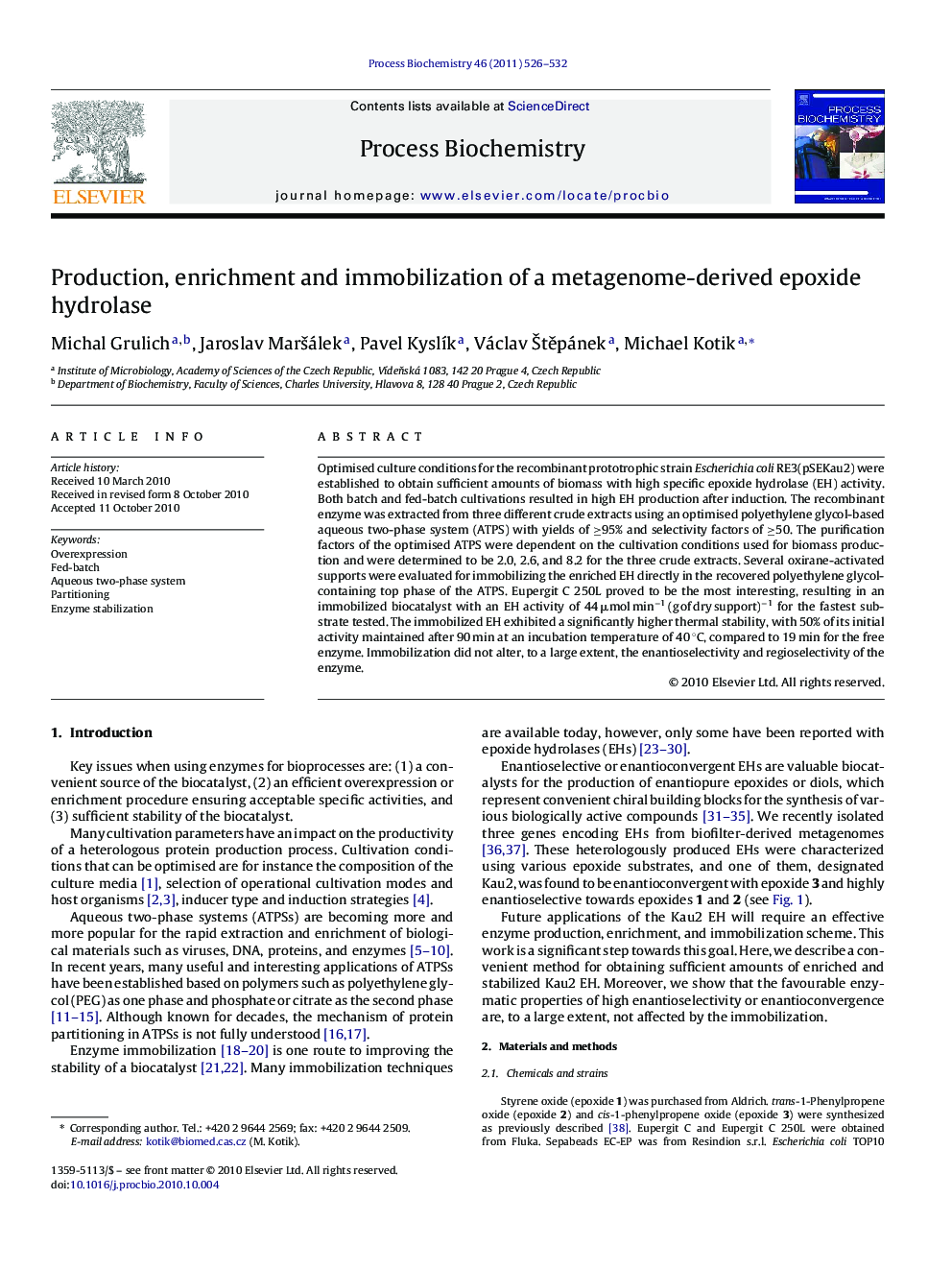| Article ID | Journal | Published Year | Pages | File Type |
|---|---|---|---|---|
| 10236043 | Process Biochemistry | 2011 | 7 Pages |
Abstract
Optimised culture conditions for the recombinant prototrophic strain Escherichia coli RE3(pSEKau2) were established to obtain sufficient amounts of biomass with high specific epoxide hydrolase (EH) activity. Both batch and fed-batch cultivations resulted in high EH production after induction. The recombinant enzyme was extracted from three different crude extracts using an optimised polyethylene glycol-based aqueous two-phase system (ATPS) with yields of â¥95% and selectivity factors of â¥50. The purification factors of the optimised ATPS were dependent on the cultivation conditions used for biomass production and were determined to be 2.0, 2.6, and 8.2 for the three crude extracts. Several oxirane-activated supports were evaluated for immobilizing the enriched EH directly in the recovered polyethylene glycol-containing top phase of the ATPS. Eupergit C 250L proved to be the most interesting, resulting in an immobilized biocatalyst with an EH activity of 44 μmol minâ1 (g of dry support)â1 for the fastest substrate tested. The immobilized EH exhibited a significantly higher thermal stability, with 50% of its initial activity maintained after 90 min at an incubation temperature of 40 °C, compared to 19 min for the free enzyme. Immobilization did not alter, to a large extent, the enantioselectivity and regioselectivity of the enzyme.
Related Topics
Physical Sciences and Engineering
Chemical Engineering
Bioengineering
Authors
Michal Grulich, Jaroslav MarÅ¡álek, Pavel KyslÃk, Václav Å tÄpánek, Michael Kotik,
